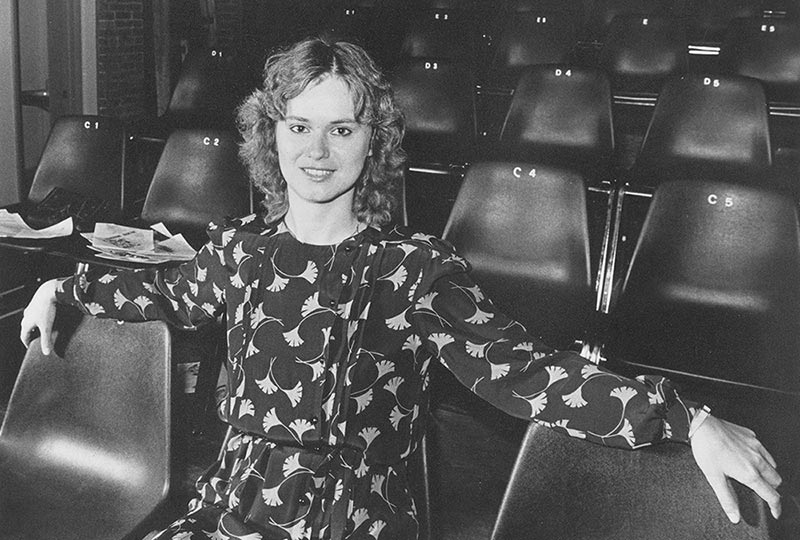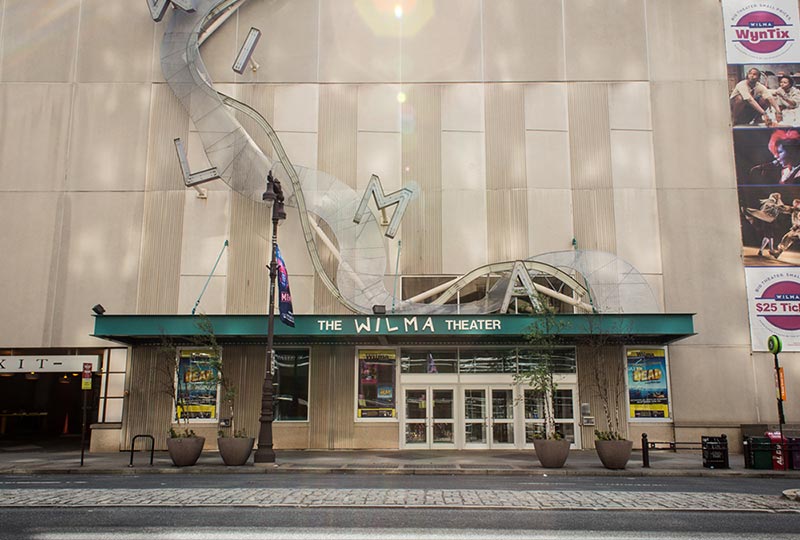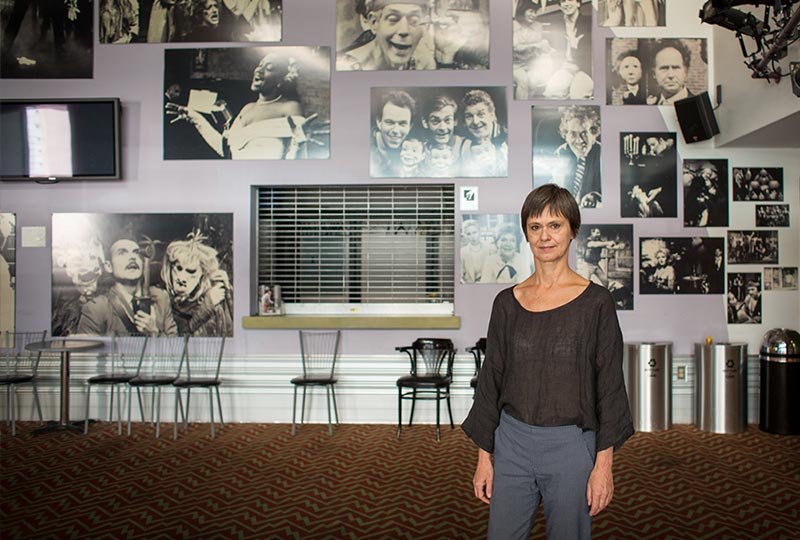When Blanka Zizka defected from Czechoslovakia, 21 years old and pregnant, she had no idea where she would end up—all she knew was that she would pursue her love of theatre. She was on a train to Munich, Germany, with Jiri Zizka, her boyfriend at the time, and for the moment, it was enough. Today, as the recipient of the 2016 Vilcek Prize in Theatre, and the artistic director of the nationally lauded Wilma Theater, it seems that her instincts have served her right.
Blanka had always been drawn to the performing arts, even from a young age. Although she grew up in communist Czechoslovakia, she had what she calls a “bourgeois upbringing”: There were dance and piano lessons, painting and tennis, even miming and ice-skating. By the age of 9, Blanka had developed a one-girl puppet show and took it on the road, performing for kindergarteners in local schools.
She continued performing throughout her teens and early twenties, although by then, the stakes were higher. A backlash against the liberalizing reforms of the Prague Spring resulted in a period of so-called “normalization” by the Russian-backed government, which included, among other things, heavy censorship of the arts and media.

Theatre, however, remained an outlet for dissent: “Theatre happened in the moment; you could not control it,” she says. Blanka was a member of an experimental troupe that mounted clandestine performances, publicized only by word of mouth or small flyers, and sometimes weeks lapsed in between each performance to avoid detection by the police. “There was this camaraderie that existed,” Blanka remembers, “because we were responsible for each other, and because we knew it was dangerous.”
Danger she was used to; the individual freedom she encountered in the U.S., on the other hand, was shocking. Blanka and Jiri spent several months in refugee camps in Germany, before Jiri struck out to Philadelphia on his own. Once settled, he sent for Blanka and Krystof, their newly born son, who arrived in 1977.
Although there was a period of adjustment to the country and to capitalism, it wasn’t long before she and Jiri found their way back to the theatre. Blanka began volunteering at the Wilma Project, a small, feminist troupe, although the group seemed to be on its way out: “It was falling apart because everybody was realizing that they wanted a different future … they were leaving Philadelphia and going to study to be a doctor or a lawyer,” she says. But having already risked everything for theatre once, Blanka was not afraid to do it again. “Theatre was my life, and I was going to do it under any circumstance.”

She and Jiri adapted and produced George Orwell’s Animal Farm in 1979, with a modest budget of $600. It was a success, and in addition to extending its run, the theater suddenly had the attention of grant makers and audiences in the state. They received increasingly larger grants for their next productions, and in 1981 they were instated as co-artistic directors.
Through the years, the theater—renamed the Wilma Theater—has become known for its daring, international repertory, and as a director, Blanka has mounted challenging works such as Tom Stoppard’s The Invention of Love, Jim Cartwright’s Road, and Dael Orlandersmith’s Yellowman. From her days in Czechoslovakia, Blanka has carried with her a sense of theatre’s potential for unraveling political and social issues. “I don’t like plays that give us a recipe, that know what the answer is,” she says. “I want the artist to be asking complex questions.”

Not content with just taking on sociopolitical issues, Blanka now has her sights on the practices of theatre itself. Since Jiri’s passing in 2013, Blanka has been the sole artistic director of the Wilma Theatre, and she has been steering the theater’s internal practices toward a more collaborative model. She envisions an environment where actors, writers, and directors conceive of and produce plays together, and working with an ensemble of resident actors who undergo extensive, ongoing physical and vocal training.
To that effect, in January 2016 the theater announced—along with a name change to Wilma at Aurora—its Transformation Fund, a fundraising drive with a goal of $10 million. The fund will be used to renovate the lobby, create a café that will be open to the public, and most of all, to invest in the Wilma HotHouse, an ensemble of ethnically diverse local actors from the city of Philadelphia.
“There are so many actors in Philadelphia these days, it would be a shame not to help them grow,” she says. “We need to be engaged with the city that we live in, with the population that lives in the city, create a space in which those discussions can happen, and then transform those discussions into art.”